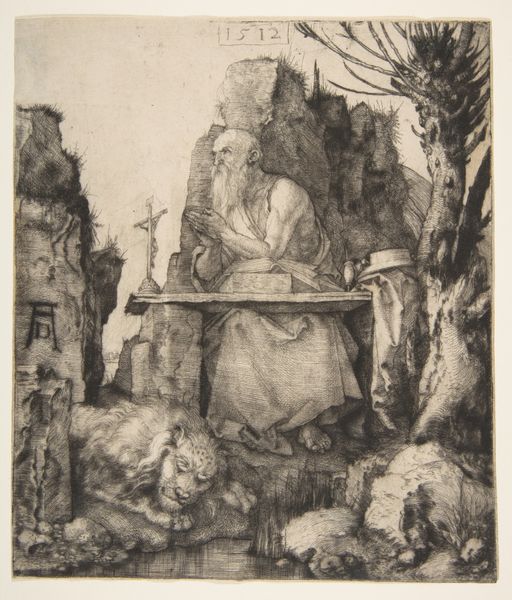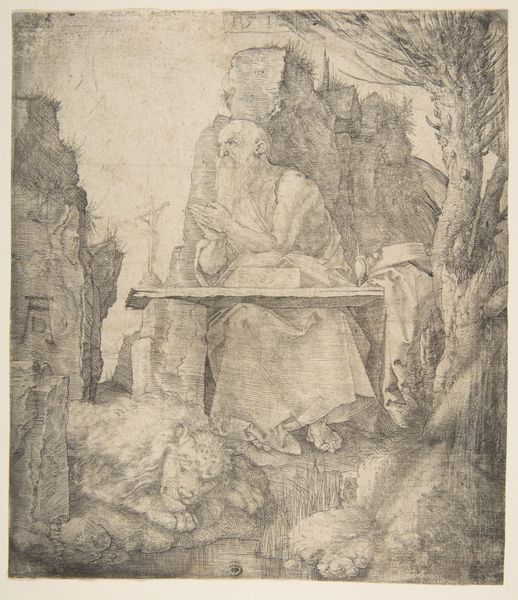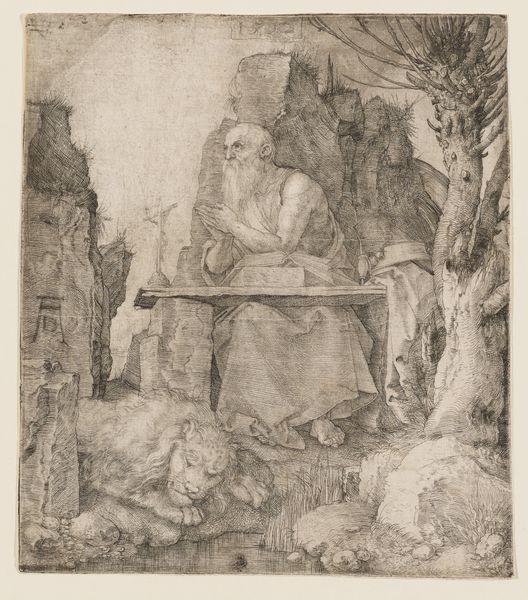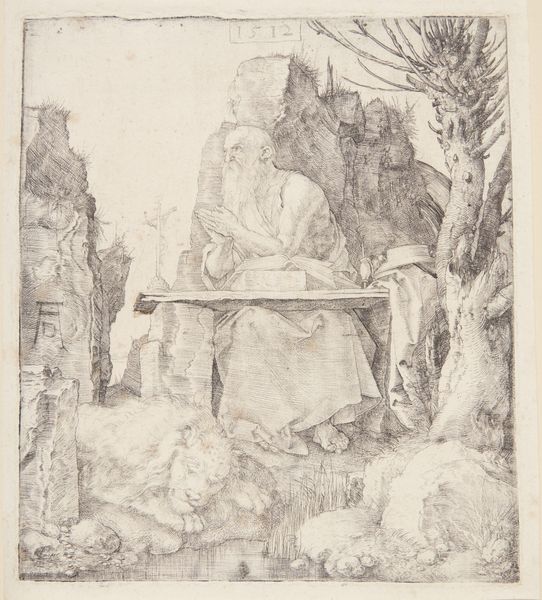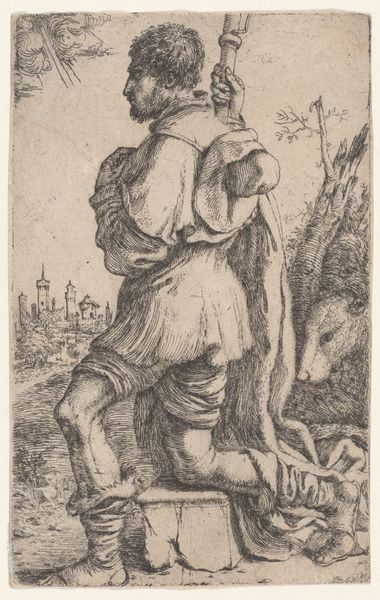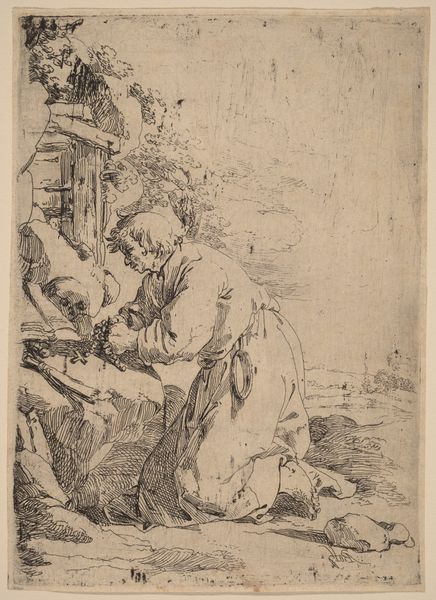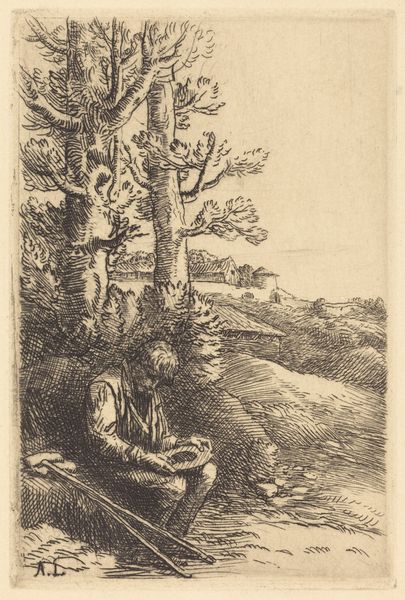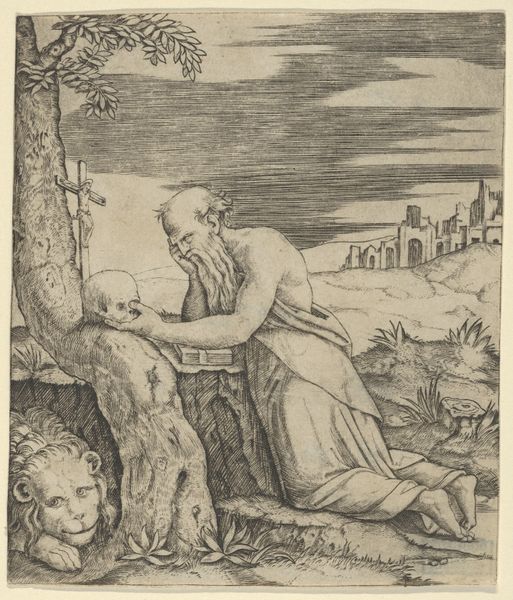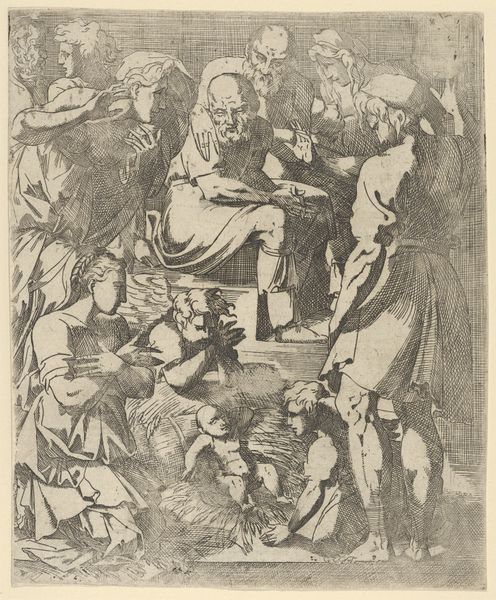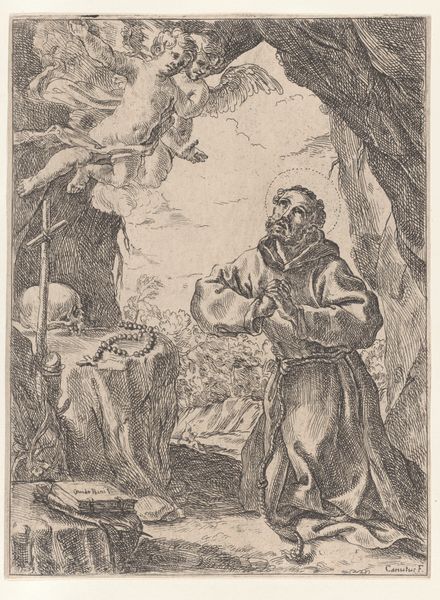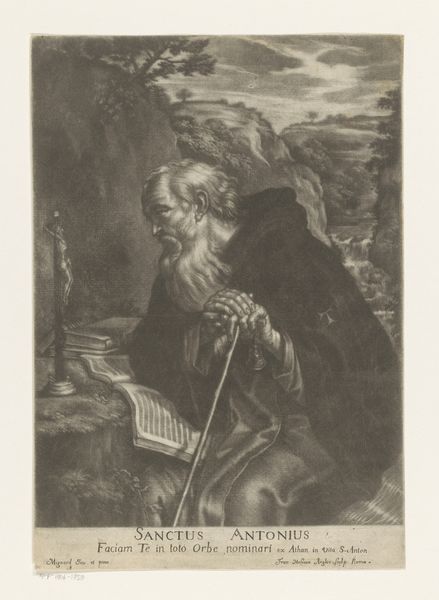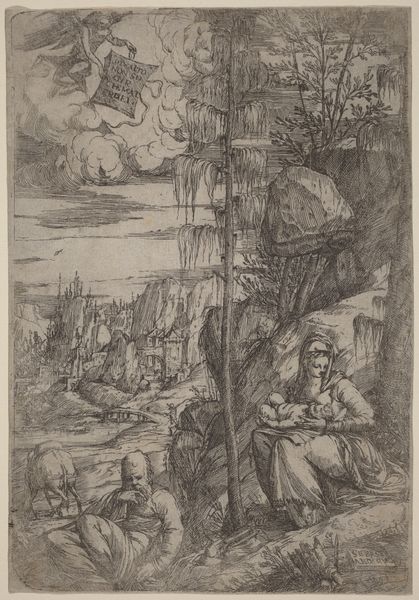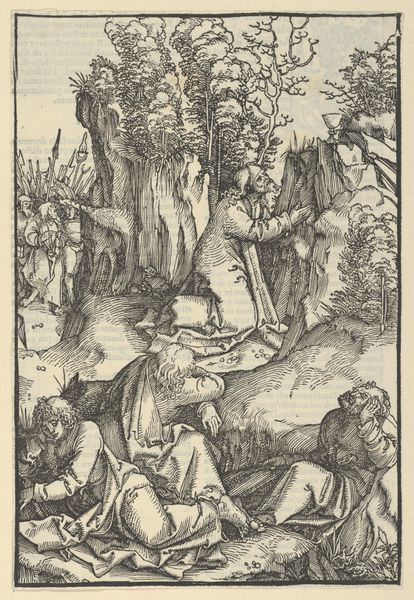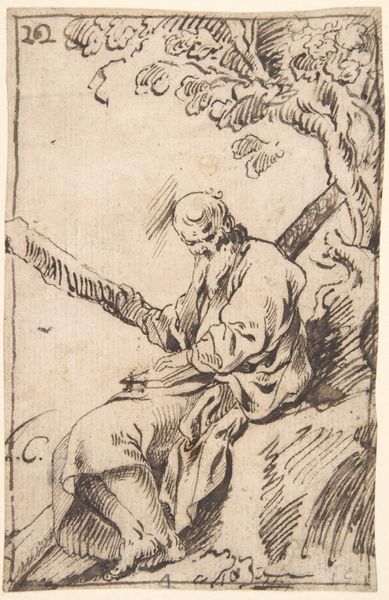
drawing, print, engraving
#
portrait
#
drawing
# print
#
landscape
#
figuration
#
cross
#
history-painting
#
northern-renaissance
#
engraving
#
miniature
Dimensions: sheet: 8 1/4 x 7 3/16 in. (21 x 18.3 cm)
Copyright: Public Domain
Albrecht Dürer made this print, "Saint Jerome by the Pollard Willow," using etching in the early 16th century. Dürer, a Northern European artist, had traveled to Italy and was very interested in Renaissance art. He brings a Renaissance interest in the natural world to this traditional Christian subject matter. But what does it mean to show a saint, a figure who would have been understood as powerful because of his connection to God, in the context of the natural world? The geography of Northern Europe was understood as wild and untamed, a place where the civilizing force of religion had to struggle to maintain its influence. Dürer’s Saint Jerome is not effortlessly and obviously powerful. Instead, he’s a figure who needs to study and pray to maintain his faith. He is surrounded by symbols of the natural world, like the lion. To understand this print better, one could read theological tracts from the time. The image shows us how Renaissance artists were beginning to understand the place of humanity in the world in a new way.
Comments
No comments
Be the first to comment and join the conversation on the ultimate creative platform.
